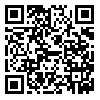Volume 20, Issue 1 (Spring 2025)
Salmand: Iranian Journal of Ageing 2025, 20(1): 136-155 |
Back to browse issues page
Download citation:
BibTeX | RIS | EndNote | Medlars | ProCite | Reference Manager | RefWorks
Send citation to:



BibTeX | RIS | EndNote | Medlars | ProCite | Reference Manager | RefWorks
Send citation to:
Asiri S, Rahimi H, Kazemnezhad Leyli E, Pourvakhshoori N. Investigating the Effects of Sleep Health Education Based on Mobile Application on Sleep Quality of the Elderly: A Quasi-Experimental Study. Salmand: Iranian Journal of Ageing 2025; 20 (1) :136-155
URL: http://salmandj.uswr.ac.ir/article-1-2917-en.html
URL: http://salmandj.uswr.ac.ir/article-1-2917-en.html
1- Department of Nursing, School of Nursing and Midwifery, Guilan University of Medical Sciences, Rasht, Iran.
2- Department of Biostatistics, Road Trauma Research Center, School of Health, Guilan University of Medical Sciences, Rasht, Iran.
3- Department of Nursing, School of Nursing and Midwifery, Guilan University of Medical Sciences, Rasht, Iran. & Medical Education Research Center, Education Development Center, Guilan University of Medical Sciences, Rasht, Iran. ,nvakhshoori@gums.ac.ir
2- Department of Biostatistics, Road Trauma Research Center, School of Health, Guilan University of Medical Sciences, Rasht, Iran.
3- Department of Nursing, School of Nursing and Midwifery, Guilan University of Medical Sciences, Rasht, Iran. & Medical Education Research Center, Education Development Center, Guilan University of Medical Sciences, Rasht, Iran. ,
Abstract: (3027 Views)
Objectives Sleep disorders are among the most prevalent issues impacting the quality of the elderly. Sleep hygiene training, aimed at modifying beliefs and habits related to sleep, is a non-pharmacological method for treating these disorders. This study determines the effect of sleep health education, delivered via a mobile application, on the sleep quality of elderly individuals covered by the national pension fund in Rasht City, Iran, in 2022.
Methods & Materials This semi-experimental study was conducted in two phases. Initially, 330 elderly individuals were included, and their sleep quality was assessed using a designated tool. Subsequently, 96 individuals with low sleep quality were randomly divided into two groups of 48 subjects, namely an intervention group and a control group. Data were collected using a two-part questionnaire consisting of socio-demographic information and the Pittsburgh sleep quality index (PSQI). The intervention group received training on using the mobile-based sleep health educational application during two face-to-face sessions and was instructed to implement its programs daily for four weeks.
Results The results of the study indicated that the average age of the elderly participants was 68.98±6.52 years, with the majority being female (60.1%), married (83.3%), living in urban areas (91.5%), and having a university education (52%). The mean sleep quality score for the elderly was 5.37±3.88, which was influenced by factors such as gender, education level, marital status, living arrangements, underlying health conditions, and employment status (P≤0.05). Among the sleep quality components, sleep onset delay presented the greatest challenge, while the use of sleep medications was the least problematic. Multivariate analysis of covariance analysis indicated that sleep hygiene education significantly improved sleep quality across all areas, except for sleep efficiency (P≥0.05).
Conclusion Sleep health education utilizing accessible and practical methods enhances the sleep quality of the elderly. Given the high prevalence of sleep disorders and their associated complications in this demographic, this model is recommended as a non-pharmacological treatment for managing sleep disorders, targeting healthcare workers, the elderly, and their caregivers.
Methods & Materials This semi-experimental study was conducted in two phases. Initially, 330 elderly individuals were included, and their sleep quality was assessed using a designated tool. Subsequently, 96 individuals with low sleep quality were randomly divided into two groups of 48 subjects, namely an intervention group and a control group. Data were collected using a two-part questionnaire consisting of socio-demographic information and the Pittsburgh sleep quality index (PSQI). The intervention group received training on using the mobile-based sleep health educational application during two face-to-face sessions and was instructed to implement its programs daily for four weeks.
Results The results of the study indicated that the average age of the elderly participants was 68.98±6.52 years, with the majority being female (60.1%), married (83.3%), living in urban areas (91.5%), and having a university education (52%). The mean sleep quality score for the elderly was 5.37±3.88, which was influenced by factors such as gender, education level, marital status, living arrangements, underlying health conditions, and employment status (P≤0.05). Among the sleep quality components, sleep onset delay presented the greatest challenge, while the use of sleep medications was the least problematic. Multivariate analysis of covariance analysis indicated that sleep hygiene education significantly improved sleep quality across all areas, except for sleep efficiency (P≥0.05).
Conclusion Sleep health education utilizing accessible and practical methods enhances the sleep quality of the elderly. Given the high prevalence of sleep disorders and their associated complications in this demographic, this model is recommended as a non-pharmacological treatment for managing sleep disorders, targeting healthcare workers, the elderly, and their caregivers.
Type of Study: Research |
Subject:
nursing
Received: 2024/08/25 | Accepted: 2024/10/20 | Published: 2025/04/01
Received: 2024/08/25 | Accepted: 2024/10/20 | Published: 2025/04/01
Send email to the article author
| Rights and permissions | |
 |
This work is licensed under a Creative Commons Attribution-NonCommercial 4.0 International License. |








